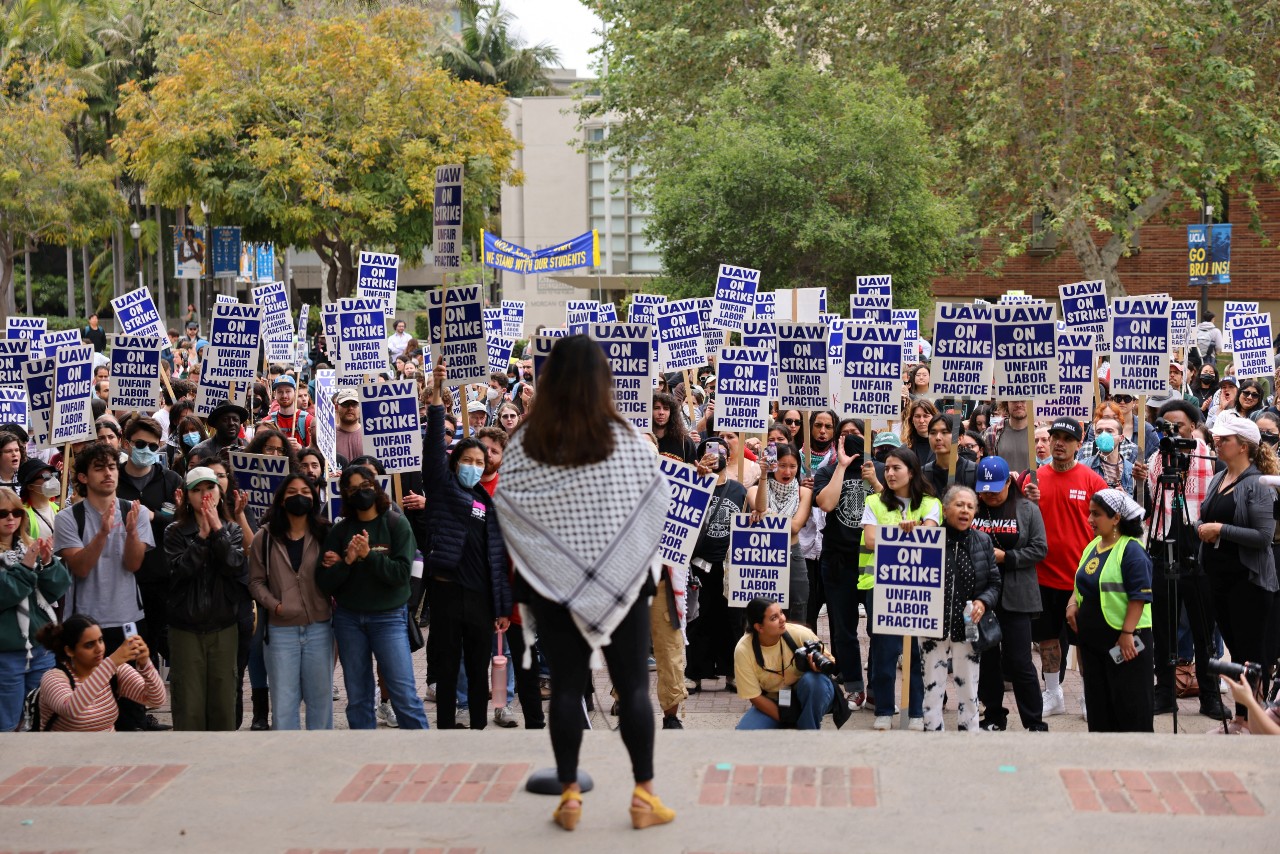Anarcho-Bolshevik
‘Lemmygrad’s resident expert on fascism’ — GrainEater, 2024
‘The political desperadoes and ignoramuses, who say they would “Rather be Dead than Red”, should be told that no one will stop them from committing suicide, but they have no right to provoke a third world war.’ — Morris Kominsky, 1970
- 1.1K Posts
- 496 Comments

It is a pretty old trope. Anticommunists want all the privileges that come from facing a strong enemy and a weak one, failing to realize that portraying the enemy as both strong and weak is confusing at best. They were repeatedly engaged in the same illogic when they were focussing on antifascist activists back in the late ’10s.

 251·6 months ago
251·6 months agoZionists, how many more Jewish people does your army need to kill before you get it into your thick skulls that your shitty little apartheid régime doesn’t help Jews? It’s not their fucking friend.

 51·7 months ago
51·7 months agoOh. That’s a good point. He really showed us how wrong we were. Now I have faith that Russia will lose the war tomorrow.

 131·7 months ago
131·7 months agoThese are going to waste a lot of tax dollars, aren’t they?

 122·7 months ago
122·7 months agoAbout one hour ago I finished reading an article titled ‘Is it ‘anti-Semitic’ to acknowledge that Arabs are Semites too?’. It mostly quibbles over how misleading terms like ‘antisemitism’ are, but it gave me some food for thought on something that the author had the opportunity to address but managed to miss.
Anti‐Arab and anti‐Jewish sentiments overlap in numerous ways. There are not only some similar stereotypes—that they’re unfair merchants interested in world domination—but fervent Judeophobes also tend to hate Arabs, often seeing them (and other races) as ‘pawns’ in Jewish plans. Admittedly, it is unlikely that anybody would mistake Ashkenazim for Arabs, but it is very tempting to think of anti‐Arab racism as not only an Arab but also a Jewish concern, because often such attackers are just as willing to target Jews as well; Judeophobia is not far off.
I am planning to read The Arab and Jewish questions: geographies of engagement in Palestine and beyond, because I have a feeling that I may be onto something here, but presently it sounds like I’m grasping at straws. I have a lot to think about; maybe these two prejudices are more closely related than they look.

 61·7 months ago
61·7 months agoThe school officials declined to either confirm or deny that he still works at the school (under the excuse that they ‘do not discuss personnel matters’), but they did say that they
can share that Mr. Reese has not been on the campus of Warner Robins Middle School since December 7, 2023. Safety and the well‐being of our students and staff is our number one priority.

 41·7 months ago
41·7 months agoI don’t know why you need a direct link when the archived one is better but okay. https://www.haaretz.com/2010-10-01/ty-article/the-mengele-squad/0000017f-f84f-d887-a7ff-f8ef5b4a0000

 4·7 months ago
4·7 months agoSorry that I gave you my cold.

 3·7 months ago
3·7 months agoKindly use this url: https://www.ajc.org/node/4737

 8·7 months ago
8·7 months agoNope. I wish that I could name the usual reasons — trauma and people refusing to speak with me — but this time it’s mostly the rhinovirus that I caught this month that’s affecting my mood. Sometimes it inhibits my breathing, it encourages me to cough, and it’s leaving an awful taste in my mouth.
Thanks for asking.

 36·7 months ago
36·7 months agoI have a feeling that they’re only publishing this now that it’s convenient for them, but honestly, aside from the neoliberal viewpoint, it was not one of the worst articles that I’ve ever read. I have talked before about this word and I rarely use it precisely because it can be so ambiguous. There isn’t even a scholarly consensus on it.
Scott Straus has counted 21 different definitions of genocide. Genocide has been a legal, political, moral, and empirical concept that means different things to different people.10 There are several scholars, including Helen Fein, Leo Kuper, Herbert Hirsch, and Kurt Jonassohn, who question the very rationale for the debate on definition. In view of the ‘bewildering array of definitions’, as Kuper put it, the UN Genocide Convention is indeed the only reasonable option.11
Usually, the dissenters express their disagreement by refusing to participate in the argument. Nobody has dared to put it plainly: the debate on definition of genocide is futile! Scholars may continue arguing about the term ‘genocide’ for decades, without reaching any conclusions, or even a working definition more functional than that agreed upon in 1948. It is practically impossible, considering all the different professional backgrounds of the participants in the discourse (put it to vote?).
Some commentators have objected to the UN Genocide Convention as a political compromise between major international players. However, international law is made up of political agreements. Were the discussion on the definition of genocide to be reopened today at the UN — which is rather unlikely — politics would come to dominate the debate much the same as they did 60 years earlier.
(Emphasis added. Source.)
I certainly don’t blame the OP for assuming ill faith: this is the Wall Street Journal, after all, and the timing is a reasonable cause for suspicion. That being said, I would still prefer that we use other terms for this type of atrocity. What the neocolonists are attempting is extermination.

 12·7 months ago
12·7 months agoNo, I’m not allowed to exist.
That’s why as soon as you all establish a dictatorship of the proletariat, you’ll shoot me in the head.
Coincidentally, that is also exactly the reason why I’m supporting you.

 5·7 months ago
5·7 months agoLinks to nothing! At least they are willing to take this and not argue about it?
They did link to a BadEmpanada video beneath the bingo card. What I find funny is that he believes that the ‘Uigur genocide’ meme is greatly exaggerated.

 10·7 months ago
10·7 months agoYawn.
Financial Times is quite obviously a CCP front.
I promise that China will collapse tomorrow.

 2·7 months ago
2·7 months agoIt’s another thought experiment. I have to admit, though, I have a hard time telling if the original poster is serious. It feels a little too on the nose.















This reminds me of the time when somebody claimed that we’re only using an instance of Zionist violence to justify our bigotry against the apartheid régime, you know, as if Zionists aren’t in the habit of saying and doing horrible shit all the time and we were so lucky to finally catch them in one instance of committing an atrocity.
We don’t oppose the Ukrainian and Zionist régimes because we’re ‘bigoted’ against them. We oppose them because their repeated atrocities harm us, the lower classes, and nobody has to spend hours and hours scouring the world wide web just to find a single example of them committing an atrocity either; finding dozens of examples is a piece of cake.